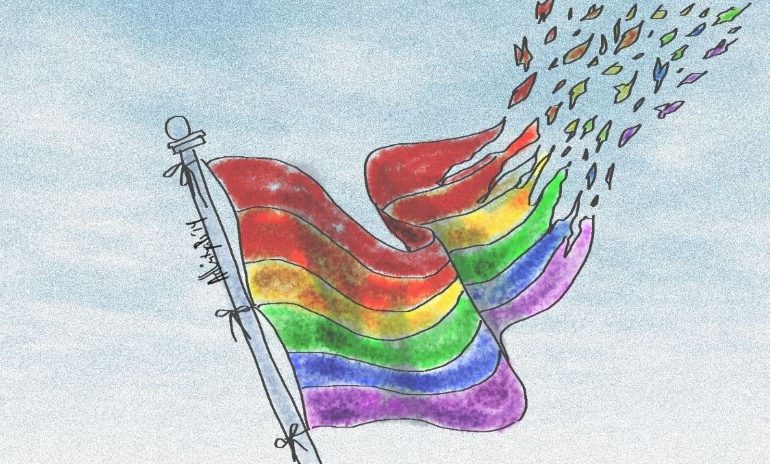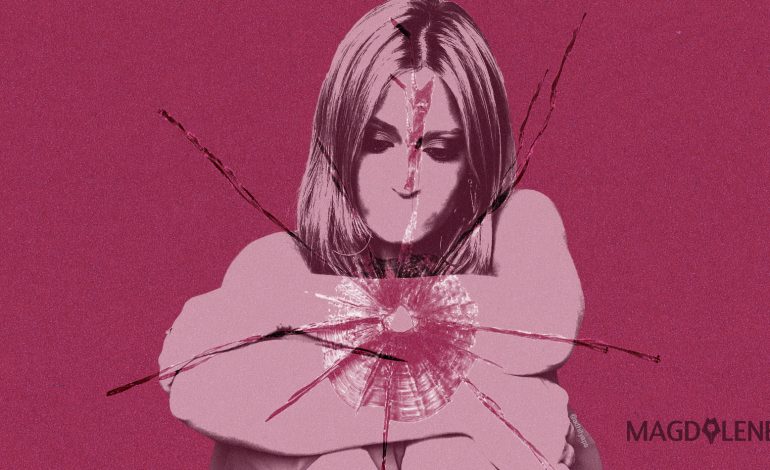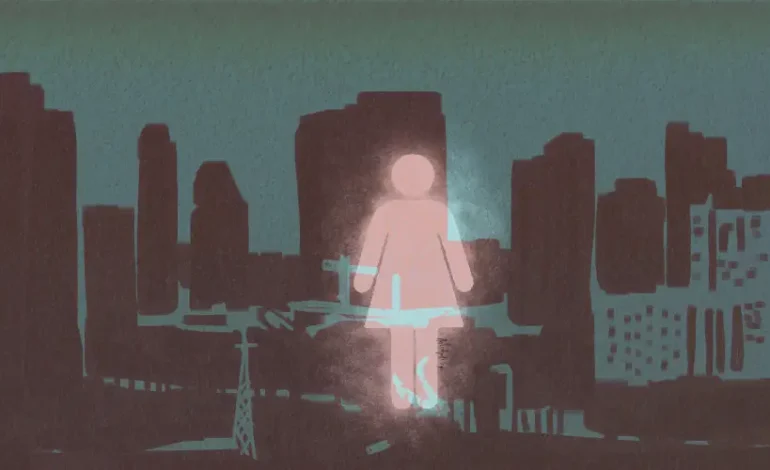The Heterosexual Privilege You Probably Take for Granted

About nine years ago, my husband and I were dining in a small restaurant in a quiet village in Ubud, Bali, when we met a glowing and genuinely happy looking couple in their late 50s or early 60s. It was a tiny, local-owned diner – with three tables and a menu that had fewer than 10 items – catering to longer-term tourists who rented villas in the surrounding area,
They sat next to us, and one of them, a gregarious and chatty man, struck a conversation with us. It progressed into a pleasant discussion and I found out that they were from California and that they’d been together for two years. I asked them how they met and they smiled and looked at each other, signalling that what was coming was complicated.
“I was a minister in a church for 30 years before I retired,” the quieter of the couple said. He had been married and had children, who were adults by then, but he knew he wasn’t happy – he had never been happy.
“The thing I’d always known was that I was gay, but my faith told me it was sinful, so I got married and did the whole being straight thing for my whole adult life.”
Long story short, he ended up divorcing his wife and began a journey of finding himself, in his 50s, until he met his current partner through – of all place – a classified ad on Craig’s List that he placed to look for a date. They had since been together happily.
I asked him if he had reconciled his religious belief with his new found sexual liberation, he said: “I believe God is love.”
To this day, this story always fills me with warmth and affirms my belief that everyone deserves to love and be loved at whatever age, and whatever their gender persuasion and sexual orientation. Most of all, I’ve always believed that the true source of discontentment and unhappiness is a person’s inability to accept themselves.
For many of us self-acceptance is an elusive thing already, a glass with tiny cracks that may shatter any moment life throws lemons at us. For gay people, especially those living in a conservative society that tells them they are an abomination or sinners, the struggle can be twice as hard. Staying in the closet – while socially, legally and, maybe even physically safer – means denying their true identity. Consequently, this has resulted in a higher rate of depression among the LGBTIQ (Lesbian, Gay, Bisexual, Transgender, Intersex and Queer) people.
Imagine living in a parallel universe, where everything is in reverse and straight people are the minority. Imagine having to hide your identity, that you, a girl, actually like a boy, instead of another girl. Imagine the religion you believe in telling you that you will go to hell, and popularity-seeking politicians accuse you of corrupting children’s mind because you like the opposite sex.
Far-fetched as it sounds, a reverse-universe exercise can give you a glimpse of your own privilege. I notice that a lot of the debates in Indonesia over LGBTIQ these days centre on two arguments:
- That homosexuality is morally wrong
- That in practice gay people are already “free”, so they should not ask for more rights.
The first argument is usually based on some religious teaching, and I am not religious so I’m not going to get sucked into it, though there are clearly differences in thoughts even within a religion.
The second part is a misconception, however, and the ridiculously alarming way the LGBTIQ issue recently snowballed has shown this. This part can easily be debunked by applying the concept of privilege that most of us have as straight people.
The simplest explanation about privilege is that it is a set of unearned benefits given to people who fit into a specific social group. In the field of social justice, you’ll hear it a lot as part of the power dynamic and being the other side of oppression. Society grants privilege to people based on certain aspects of their identity, such as race, class, gender, language, ability and religion, and sexual orientation.
I have compiled below a short list of heterosexual privilege most of us take for granted that are still largely denied to LGBTIQ people. There are many others, of course, but I hope this list will get us to think about our privilege as straight people.
1. You live in a heteronormative society
Heternormativity is the belief that people fall into distinct and complementary genders (man and woman) and that heterosexuality is the only sexual orientation and norm. I was moved when I heard about the Californian former preacher’s story, because I never had to go through such struggle. When I was 8 years old I had a crush on a boy in my class. When I was 14, I started seeing a boy at school and since then, I have dated a few other guys. When I was 25 I fell in love with a guy who would become my husband eight years later, and so on, and so on.
My point is no one freaked out about the fact that I liked boys. At 8 or 14, no one said it was just a phase. No one questioned me and warned of the larger implication of liking the opposite sex, because it is expected. However, when you’re a 15-year-old boy and realizing you’re attracted to another boy, it could scare the shit out of you and make you think there’s something wrong with you, because nobody else you knew had that feeling. For some, this sense of being “wrong” and unaccepted leads to fatal consequences, like suicide.
Heteronormativity is closely linked to gender norms and presents in everyday life without us realizing it. A friend who just had a baby boy told me, rather discreetly, that while she appreciated the gesture, she wished people would buy clothes for her son in colors other than blue.
“Yellow, would be nice,” she said, “Pink, even!”
Regardless the fact that blue was once seen as a feminine color – and pink masculine – this shows that even right after birth, a child is instantly fit into a gender narrative that is dominated by the presumption that everyone is or should be straight.
This also means that there are ample of media representation of heterosexual romance. On TV shows, films, magazines, everywhere you look, it’s straight couples making out. Yes, there are more queer characters and same-sex romance on western TV these days, but in Indonesian pop culture, gay characters are still largely represented by either a buffoon stereotype or a wretched figure who needs salvation.
2. You don’t have to come out.
Let’s put you back in that parallel universe: you’re sick and tired of hiding your identity, so you finally decide to come out. What will happen? A lot.
Yes, coming out is a big theme in a gay person’s life. And because of its possible social implication, some people never do and they’d do anything to hide their sexuality (including being in a heterosexual marriage at the expense of their unsuspecting spouse), some people only come out to a small group of people they trust, others are content to live in between, in a state of “common understanding”. And to reach that point where you come out is never easy. There’s a lot of consideration you have before making that plunge. Also coming out isn’t just a one-time thing. There is not one switch that gets you “out” and then you’re free forever, because everyone now knows and accepts you. Gay people often have to do it over and over and over again.
3. You can get married legally in all parts of the world
It’s true that some countries have legalized same-sex marriage, but the rest of the world hasn’t caught up. In fact, there are still pretty nasty laws out there banning homosexuality. Legal union means a lot of things, from social recognition and support for your intimate relationship, getting a joint bank account, owning a property together, filing couple’s income tax, sharing insurance policies, to having the legal right to inherit from your spouse. You can also list your partner for immediate access in terms of accident or emergency.
4. No need to worry about being found out at school or work and getting expelled or fired
Yes, these still happen in Indonesia. Some jobs like teaching in schools are still closed to gay people because of the presumption that they would harm or corrupt children. Perceived sexuality is often the number one reason a boy gets bullied in school.
5. You don’t have to fear being beaten up or raped because of your sexual orientation.
Sexually-driven hate violence is still one of the highest causes of death for gay people, and rape is known to be “prescribed” as a “cure” for lesbian women. In the United States, violence on the basis of sexual orientation makes up nearly 17 percent of all hate crimes, and more than half of them are against gay men. Violence targeted at people because of their perceived sexuality can also be psychological.
6. You won’t lose family or friends if you reveal your sexuality.
There are many cases of parents’ disowning their children or stopping financial support for them, forcing them to drop out of school. About 40 percent of homeless youth in the U.S. are queer and trans kids. I’m sure the number is also high in Indonesia, if there is such statistics. Being straight means you can also raise children, whether your own or adopted, without the fear of having them taken away from you because of your sexual orientation
This means you don’t have to hide who you are, your partner and your love life. I have many close friends who are gay, and only less than a handful of them are fully out. Some continue to live a semi-closeted life, open only to people closest to them. For some, they have to go to great lengths to avoid outing themselves, from coming out with excuses about why they’re not married yet, making up stories about significant others, to introducing their partners as a brother or cousin.
Knowing our privilege teaches us to be compassionate and more sensitive of others who are on the other side of oppression. Knowing our privilege helps us become a better person.
I hope you will go out there and use your privilege to amplify the voice of those not in a position of power to be heard.
Read Devi’s interview with a young woman who dedicates her life providing support to victims of gender-based violence and follow @dasmaran on Twitter.






















